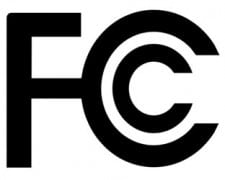 W277AN Cape Canaveral FL, an FM translator owned and operated by Ace of Hearts Disc Jockey Service Inc., was found broadcasting at a power level in excess of its licensed wattage, among other things. And even though it has received a reduction in its penalty liability, it is still facing a stiff fine.
W277AN Cape Canaveral FL, an FM translator owned and operated by Ace of Hearts Disc Jockey Service Inc., was found broadcasting at a power level in excess of its licensed wattage, among other things. And even though it has received a reduction in its penalty liability, it is still facing a stiff fine.
The station is licensed for 61 Watts, broadcast from a single antenna. But different signal strength measurements by FCC agents on different dates revealed a range of powers that had in common being in excess of the licensed output. The station was also found to be using a two-antenna array.
The total fine levied against AHDJS was originally set at $13K. The licensee tried to duck the fine.
Its primary argument strained the credulity of the FCC – it said that the only thing it could figure is that an unknown third party was tampering with the station. It claimed that when it self-monitored the station’s output, it was fine – only when FCC agents were around with their signal strength measuring equipment did there seem to be a problem.
The FCC found this story difficult to believe, saying, “we find it implausible that an unrelated third party would know when Ace would conduct inspections of its transmitter and ensure that the power levels were properly set on those dates; and then, at the same time, know when the Commission would conduct unannounced inspections and measurements and, in anticipation of such inspections, deliberately adjust the transmitter to reflect overpower operations only during those dates.”
AHJDS also said that an investigating agent informed them that first-offenders usually get “a mulligan” – but this claim was denied by agents and regardless, the FCC pointed out that there has been more than one instance of overpowered operation.
As for the double antenna, AHDJS said the problem was the result of a typo and has since applied for a CP to use the two-antenna array. It also stated that the infraction did not cause any change to the station’s power output, a claim the FCC agreed with. It gave the station a $2K discount on this charge, reducing that part of the fine from $5K to $3K and bringing the final bill down to $11K. It is also hit with reporting requirements to assure the FCC it is operating according to terms of its license.





